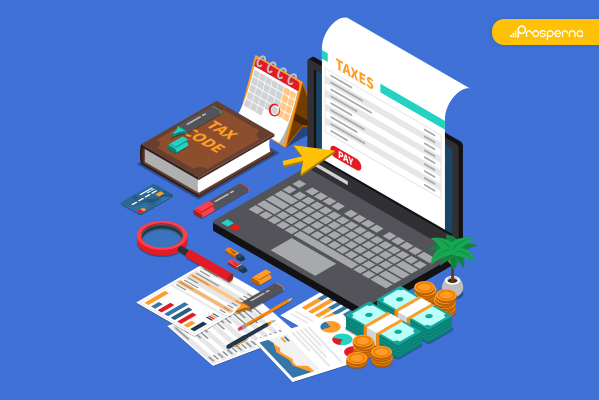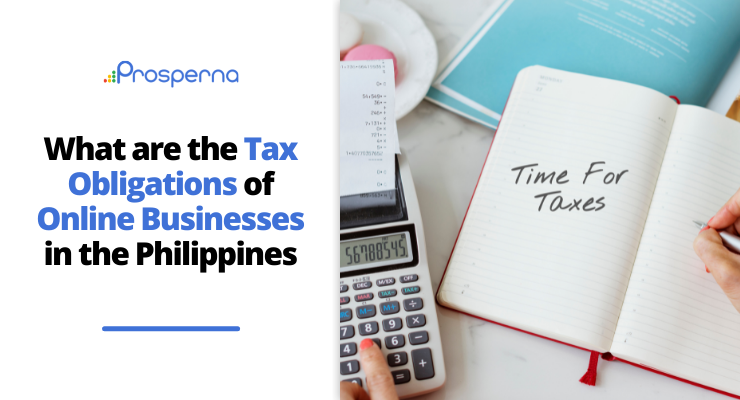Do I have to pay tax if I sell pre-loved clothes online? This is a common question for anyone doing online business transactions.
The lockdown brought by the Covid-19 pandemic cost many people to lose their jobs. But Filipinos are naturally resilient and have found ways to survive. This paved the way for online businesses and sellers in the Philippines to thrive as more and more customers turned to online shopping.
Selling products and services online allows small business owners to reach a wider audience and grow their business. But as a small business owner in the Philippines, it is important to stay up-to-date on the country’s tax laws and regulations.
In this blog post, we will provide an overview of the Philippine Bureau of Internal Revenue’s tax compliance that online businesses and sellers in the Philippines must comply with.
Types of online business transactions
Tax for online businesses is not really new in the Philippines. As a general rule under the Tax Code, anyone engaging in trade or business is taxable. It was further strengthened when BIR issued a memo in 2013 (RMC 055-13), clarifying that online businesses and sellers are also required to pay tax for their eCommerce activities.
But before we dig into the obligation of tax for online businesses in the Philippines, we need to understand first what the Bureau of Internal Revenue (BIR) meant by an “online business”.
According to the memorandum, these are the four most common types of online business transactions in the Philippines:
- Online business or retailers – a business owner that sells products or services through different online channels
- Online intermediary services – those that promote and push sales for online sellers e.g. Lazada and Shopee
- Online advertisement/classified ads – promoting products or services across websites and social media platforms
- Online auction – provides a space i.e. virtual auction room for a product or service to be sold to a customer willing to bid for the highest price
Tax obligations for online retailers

Fast forward to 2020, the BIR aims to increase its collection target to help fund the country’s Covid-19 response efforts. As online businesses and sellers have grown and become more popular, BIR issued another memo.
The Revenue Memorandum Circular No. 60-2020 (RMC) 60-2020 is there to update the unregistered and remind anyone doing online business transactions to register their online business and pay the corresponding taxes.
As an online retailer, you are required to issue an Official Receipt or Sales Invoice to your customers in all cases as proof of sale. If payment is received via credit cards, you must issue an acknowledgment receipt to the credit card company. Also, you are required to pay a commission (10% net of Expanded Withholding Tax) to the said credit card company.
Furthermore, all online businesses and sellers in the Philippines have an obligation to comply with the following:
- Keeping of registered Books of Accounts and other accounting records of business transactions
- Withholding of taxes as applicable
- Filing of required tax returns
- Payment of correct due taxes
However, you are exempted from paying tax for your online business in the Philippines if you have an annual income of P250,000 and below. Provided, that is, you elect an optional 8% upon the filing of your online business’ first quarter income tax return.
Registering an online business with the BIR
Registering your online business in compliance with your tax obligations is quite the same as registering a traditional offline business.
Go to your nearest BIR Regional District Office to file a certificate of registration. BIR may require you to submit the following documents:
- DTI Certificate of Registration
- Barangay Business Clearance
- Mayor’s Permit
- Government-issued ID
- Proof of Address, e.g Lease Contract or Land Title Certificate
After securing a Certificate of Registration, you must secure an Authority to Print invoices and receipts. This could either be a manual book of accounts or a Computerized Accounting System (CAS). It depends on your particular business model on what system works best for your online business.
Standard taxes filed by online businesses

BIR has confirmed that existing tax laws and regulations on purchases and sales of goods and services shall apply to both online and offline businesses.
Here are some of the standard taxes online businesses in the Philippines are required to file and pay:
- Quarterly and Annual Income Tax
- Withholding Tax on Compensation
- Monthly and Quarterly Value Added Tax (for businesses earning more than P3M in a taxable year)
- Quarterly Percentage Tax (for businesses earning P3M or less annually not subject to VAT)
- Expanded Withholding Tax/Creditable Withholding Tax
Submission and compliance with tax obligations can be complicated and tough, especially for those without in-depth knowledge of the tax system in the Philippines. That’s why if you’re running an online business in the Philippines be sure that you’re updated with the latest tax laws and regulations. Or you can talk to a tax advisor to get some expert advice.
FAQs
Does an online business need to pay tax in the Philippines?
Yes. The BIR released a memo in 2020 reminding online businesses of their obligation by law to pay sales and income taxes.
Do I need to register my online business in BIR?
Yes. Under Section 236 of the Tax Code, every person subject to tax, including online businesses, shall register with the appropriate revenue district officer.
Final Thoughts
Does it seem intimidating? No, it shouldn’t be. As long as you familiarize yourself with the pointers given above, you’ll realize it’s not that hard to comply with tax obligations for your online business in the Philippines.
As good Filipino citizens, we have to comply with our country’s rules and regulations—and that includes paying our taxes on time. Have you registered your online business yet? If so, how was it? Let us know in the comments below.
Related articles:
- Business Loan
- How to Get a Business Permit in the Philippines
- Business Plan for Your Online Business
Prosperna, Your Partner to eCommerce Success
Prosperna is an all-in-one eCommerce platform for Philippine businesses. We are on a mission to empower 100,000 Philippine MSMEs with simple and affordable eCommerce solutions.
In fact, we are super passionate about helping Philippine MSMEs we’re giving you a free account forever!
Want to start selling online? Create your free-forever Prosperna account now.




